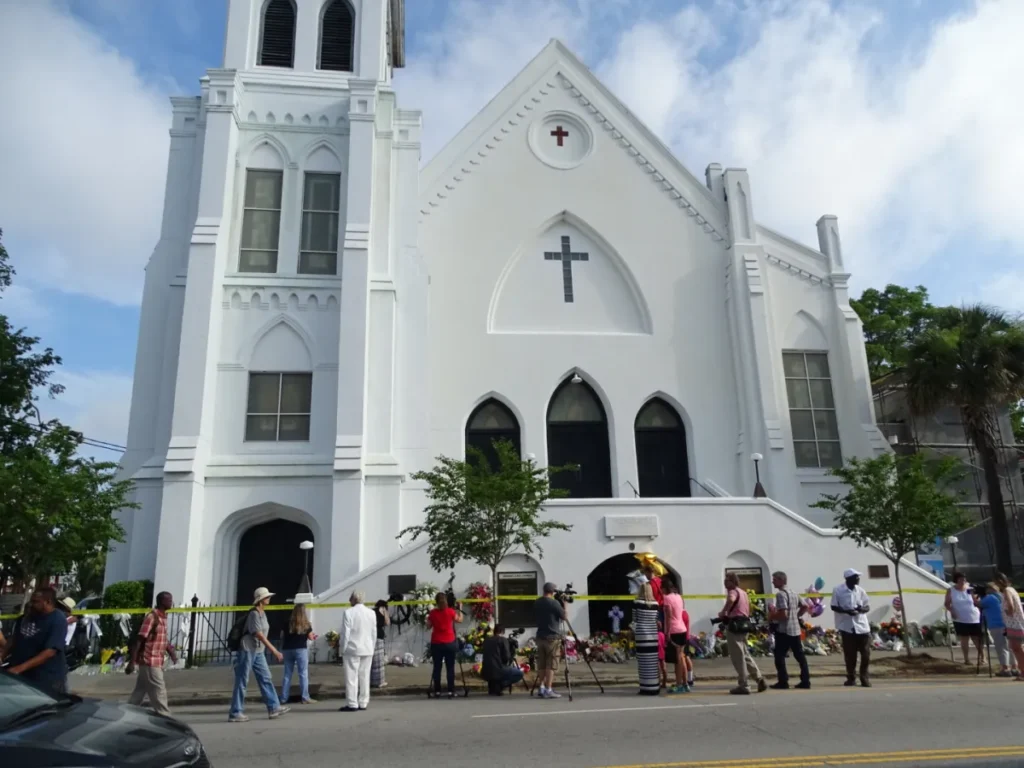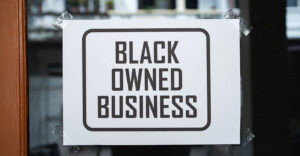Racist massacre survivor urges hate crimes law in South Carolina

by JEFFREY COLLINS Associated Press
COLUMBIA, S.C. (AP) — With the opportunity to make South Carolina the 49th state to pass a hate crimes law nearly gone, supporters turned to one of the survivors of the most heinous racist attack in modern America to make their case Wednesday.
They showed a two minute video of Polly Sheppard in the Senate chamber where the bill has been stuck for months with eight Republicans senators objecting to it and only eight more legislative days to take action.
The racist who killed nine of her church friends in 2015 pointed his gun at Sheppard, but said he would spare her life so she could let people know he was killing Blacks because he hated them. One of the dead was her pastor, state Sen. Clementa Pinckney.
“Eight members of the South Carolina Senate are giving a safe haven to hate. Every time you look at senator Pinckney’s photograph, you should be reminded that hate killed him,” Sheppard said.
The killer at Emanuel AME is on death row after being convicted of hate crimes under federal law, a point opponents of the bill use to say it is unnecessary. They also have said a crime is a crime no matter the motivation and a hate crime bill could eventually be used to curtail free speech, especially against Christians.
But mostly, they have stayed silent about their reasons to not bring the bill that passed the House in 2021 up for debate in the Senate since the session started in January. If the bill does not pass by the time this year’s session ends May 12, supporters will have to go back to square one.
Wyoming is the only other U.S. state without a hate crime law. That’s where the killing of gay college student Matthew Shepard in 1998 led to the federal hate crimes law. Repeated attempts to pass a bill in Wyoming have failed, including last in 2021.
The “Clementa C. Pinckney Hate Crimes Act” in South Carolina would add up to five years in prison for someone convicted of murder, assault or other violent crime fueled by hatred of the victim’s race, sexual orientation, gender, religion or disability.
Democratic Sen. Kevin Johnson said he has heard naming the bill after the Senate’s fallen colleague has rankled some opponents and offered to put up an amendment to change the law’s title.
“It’s not the name that’s attached to the bill. It’s the bill itself and what it represents and more important what it speaks against,” Democratic Sen. Ronnie Sabb responded.
Several Democrats stood Wednesday to get a better view of the Polly Sheppard video and were joined by a few Republicans. The video ended with the names of the eight Republicans objecting to the bill and the tag line “What will you do!?”
“What is wrong with protecting us from hate crimes?” Sheppard said in a quiet, but firm voice. “Please remove your objection so this bill can pass today.”
Tension spilled over as other Democrats rose to speak. Sabb didn’t finish his remarks in the five minutes allotted and a fellow senator made an almost always granted request for additional time. Several Democrats said Republican Senate Majority Leader Shane Massey objected.
Senate Republicans against the bill did not respond when asked en masse if they wanted to speak Wednesday.
Supporters of the hate crimes bill worked throughout most of 2021 to get it through what is usually the more conservative South Carolina House. The state Chamber of Commerce pushed hard saying major companies might think twice about locating or expanding in a state without a hate crimes law.
South Carolina’s reluctance to pass a hate crimes law is being discussed on a white supremist message board too, where members discussing the best places to live mention the lack of a hate crimes law alongside the state’s booming economy and good weather, according to members of the Anti-Defamation League who monitor the sites.
“We’re sending a message we don’t stand against hate, and some crazy people might think we support it,” said Joel Lourie, a former Democratic state senator and a member of a regional board of the Anti-Defamation League.
South Carolina Sen. Darrell Jackson said he worries the memories of nine dead Black people at a Bible study is not enough to spur a state hate crime law.
“We will eventually get hate crimes, let me tell you. The question is how much pain we will have to endure before we get it,” the Democrat said.
For Jackson, who has been in the South Carolina Senate since 1993, the hate crimes debate is a reminder of how long and hard the fight was to first bring the Confederate flag off the Statehouse dome in 2000 and then off the Capitol lawn in 2015 after the Emanuel AME massacre.
“We will come around. South Carolina always does the right thing,” Jackson said. “A friend of mine called me and said, you told me that two years ago, The question is how long does it take you to come around?”








